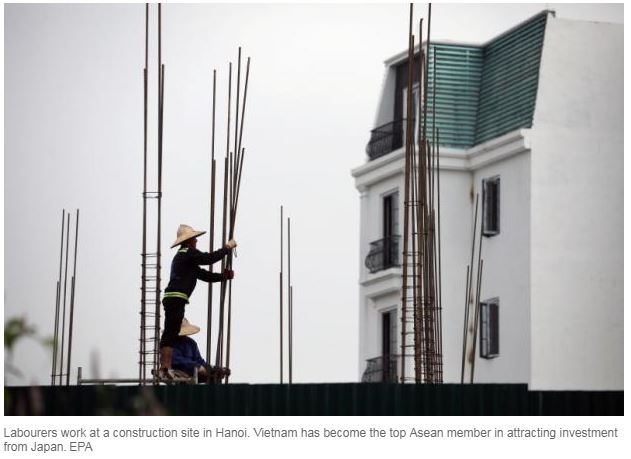Six services to be liberalised for Asean in 2019
Thailand looks set to open six more service businesses to Asean members next year, as the private sector urges the government to come up with more open policies to cope with digital technology.
According to Auramon Supthaweethum, director-general of the Trade Negotiations Department, Asean members have been speeding up implementing the 10th package of commitments under the Asean Framework Agreement on Services (Afas), which calls for an increase in minimum Asean equity participation to 70% in the service sector.
Afas was signed in December 1995 in Bangkok, two years after Asean launched the initiative to work towards the Asean Free Trade Area (Afta) for trade in goods through the Agreement on Common Effective Preferential Tariff Scheme for Afta signed in 1993.
Afas provides the mandate for progressive negotiations on the liberalisation of trade in services, recognising that intra-Asean services liberalisation will strengthen the flow of trade and investment in the services sector among Asean member states and will eventually contribute to overall economic integration in the region.
Afas is based closely on the provisions of the General Agreement on Trade in Services (GATS), the first multilateral agreement on services, which was concluded under the Uruguay Round of multilateral trade negotiations in 1994. Subsequent decisions were made to further strengthen services and liberalisation in Asean, while remaining consistent with the GATS provisions.
Asean has made an effort to create a freer flow of trade and investment in the various service sectors through progressively higher levels of commitments and more certain and predictable rules in all subsectors that have been committed.
As of the 9th Afas Package signed in 2014 by the Asean economic ministers in Myanmar, Asean member states have made commitments to liberalise a wide range of service sectors and subsectors, ranging from 90 to 108 subsectors out of a total 128 subsectors.
The 10th package is the final commitment under Afas. It puts focus on opening six service businesses comprising packet-switched data transmission services, circuit- switched data transmission services, electronic data interchange, freight transport, maintenance and repair services for liquid natural gas tanker ships of not more than 500 tonnes, and barge cleaning services.
According to Mrs Auramon, five Asean countries have already agreed on the 10th package of commitments under Afas: Brunei, Indonesia, Malaysia, Singapore and Thailand.
Jesada Sivaraks, head of government and industry relations at Ericsson Thailand, said that given rapidly changing technology, the government should come up with more open policies to allow greater investment in the service sector.
Tight state controls on the service sector will force local small and medium-sized enterprises to invest more overseas, Mr Jesada said, adding that the government should change its mindset to function more as a supporter and facilitator of private investment and more partnership between state units and the private sector instead of a regulator or controller.
He cited the example of Estonia, which offers government-issued digital residency to non-resident citizens for only €100 (3,892 baht).
This allows individuals to digitally sign important documents, access secure services, make secure transactions and establish an Estonian company to serve clients based in Europe, even if they do not live in Estonia.
Estonia is the world leader in digital governance and a founding member of the Digital 5, a global network of leading digital governments. In December 2014, Estonia became the first country in the world to introduce the concept of e-residency.
“The digital world is difficult to control and has opportunities and rapid changes,” Mr Jesada said. “Private investment is ready to flow to countries that offer the most convenience in doing of business, as the private sector is unlikely to wait for the government easing their controls.”
Source: https://www.bangkokpost.com/business/news/1513046/six-services-to-be-liberalised-for-asean-in-2019


 English
English




